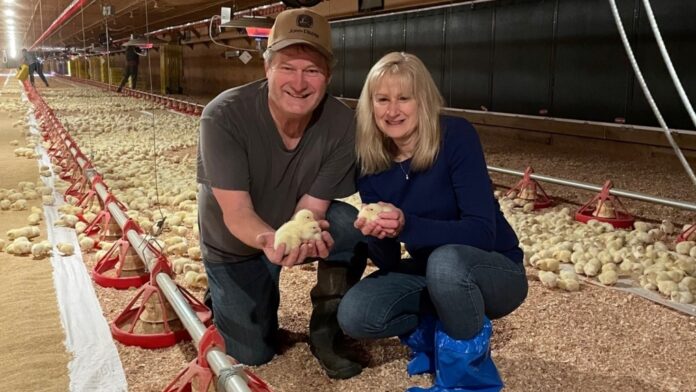Abbotsford, BC –
Fourteen months after Dave Martens’ chicken coops in Abbotsford’s Sumas Prairie were flooded, repairs are almost complete and he’s finally having birds again.
“So far our birds are healthy and doing well,” he said.
And he hopes it stays that way.
Dozens of other BC poultry farmers continue to struggle after their flocks were struck by bird flu.
“Our thoughts are definitely with a lot of producers who are struggling right now,” Martens said.
According to the Canadian Food Inspection Agency, 70 farms in BC are currently infected, affecting more than 3.6 million birds.
In comparison, in Canada, the second highest numbers are found in Alberta, where 14 farms and 1.4 million birds are affected. Ontario infected 10 buildings.
“It’s very stressful because there’s a lot of uncertainty,” said Ray Nickel of BC’s Poultry Industry Emergency Response Center.
But he says things have improved somewhat.
“We’re really working on the cleanup phase and trying to get affected farms back into production,” he said. “It was a real fight. From mid-November through Christmas we seemed to be getting new cases every day… It definitely corrected itself.”
During this time, BC’s agriculture minister said workers were finding it difficult to keep up with calls for infected farms to be depopulated.
“There were issues with not being able to attend to all the farms in a timely manner,” said Pam Alexis, BC Minister of Agriculture and Food, noting that this is a federal responsibility.
“We’ve actually been on the phone and working with the federal government to bring together teams that are helping with depopulation so we can do that in a timely manner. So that was one of the biggest hurdles we faced,” Alexis said.
“Everyone is doing their best to prevent another outbreak,” she said, adding that there have been eight new farms with outbreaks this month.
Nationally and internationally, manufacturers are looking for solutions to a problem that Nickel said has become endemic.
“Our bird populations carry the virus and we need to strategize not only in BC and here in Canada but also in other parts of North America,” he said.
Vaccination of birds could be part of a possible solution.
“For one thing, vaccination is being seriously considered and considered, and there are ways in which it will be implemented,” Nickel said.
“It’s also complicated because it has to be done together with our trading partners and other countries,” he added, stressing that avian flu is “an animal health problem, not a human health problem.”
Meanwhile, farmers like Martens are working to keep their herds disease-free.
“Of course it’s stressful. This is how we make our income. That’s what we do for a living,” he said. “We do everything we can, practice good biosecurity and don’t let anyone into our barns.”
Just this month, Martens completed most of the remodeling and repairs needed after the 2021 flood disaster. He lost 40,000 birds in the floods.
He hopes that bird flu will stay away from his farm and he can avoid further losses.














